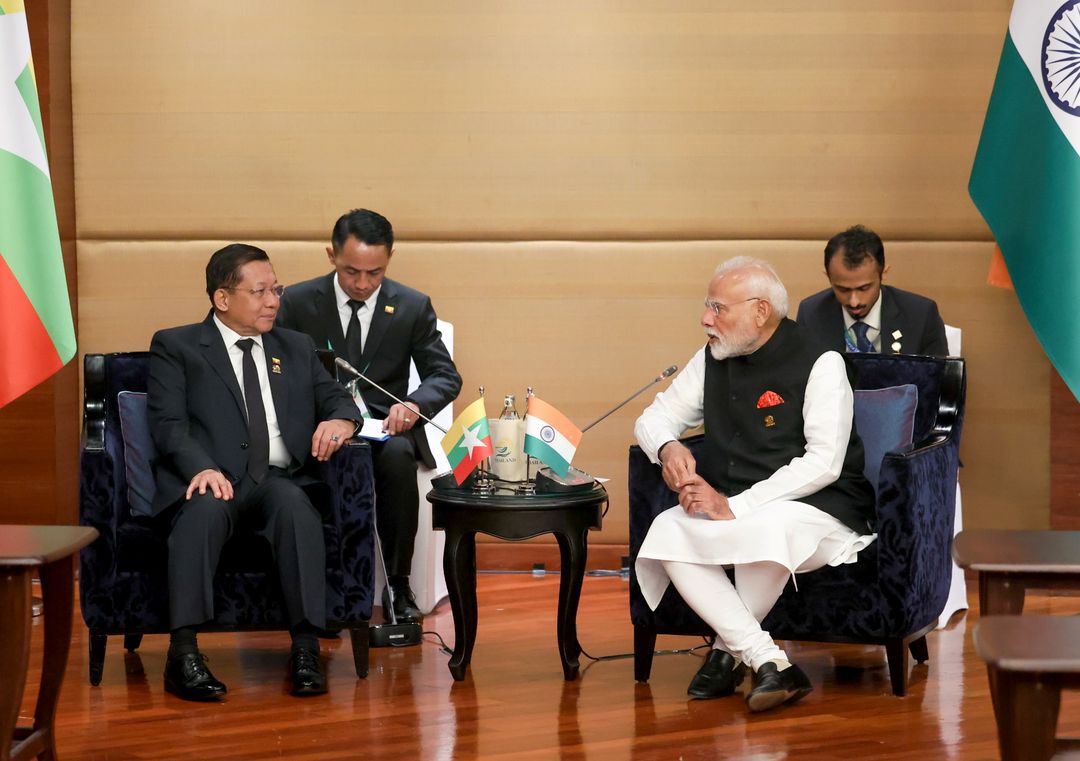
India Steps Up Relief Efforts as Myanmar Battles Earthquake Aftermath
Bangkok, April 4 – Prime Minister Narendra Modi assured Myanmar of India’s continued support following the devastating 7.7-magnitude earthquake, while calling for credible and inclusive elections to resolve the ongoing conflict in the country.Modi met with Myanmar’s military ruler, Senior General Min Aung Hlaing, on the sidelines of the 6th BIMSTEC Summit in Bangkok, marking their first official interaction since the February 2021 coup that ousted Aung San Suu Kyi's democratically elected government.
Focus on Operation Brahma and Earthquake Relief
A significant portion of the 35-minute meeting centered around Operation Brahma, India’s swift relief initiative launched in response to the March 28 earthquake that has claimed over 3,100 lives in Myanmar. Prime Minister Modi reiterated India’s commitment to helping Myanmar during this critical time.India has deployed over 250 personnel in Myanmar, who are operating a field hospital in Mandalay, one of the worst-hit regions. The National Disaster Response Force (NDRF) is also on the ground aiding relief operations. A senior Myanmar official visited the Indian medical facility, expressing appreciation for the timely assistance.“India is doing whatever is possible to assist our sisters and brothers of Myanmar in this critical time,” the Prime Minister shared on X (formerly Twitter), also expressing condolences for the lives lost and damage sustained.
Emphasis on Democracy and Peaceful Resolution
Foreign Secretary Vikram Misri briefed the media that the Prime Minister stressed the urgent need for Myanmar to restore its democratic process.Modi emphasized that there is no military solution to Myanmar’s internal strife and that inclusive dialogue is the only pathway to lasting peace. The Prime Minister reaffirmed India’s backing for a Myanmar-led transition toward a peaceful and democratic nation.“The Prime Minister underlined the importance of early restoration of the democratic process… through credible and inclusive elections,” Misri said.
Bilateral Cooperation and Regional Connectivity
Discussions also covered broader India–Myanmar bilateral relations, including:- Connectivity projects
- Infrastructure development
- Capacity building initiatives
Both sides agreed to intensify cooperation to combat transnational crimes, insurgent activity, and human trafficking along the India–Myanmar border.
Sources noted that Senior General Min Aung Hlaing lauded India’s rapid response and drew parallels with the 2001 Bhuj earthquake, commending Modi’s leadership during that time and recognizing its relevance for Myanmar’s current reconstruction efforts.
BIMSTEC’s Strategic Importance and Myanmar’s Role
Myanmar remains a key strategic partner in the Bay of Bengal Initiative for Multi-Sectoral Technical and Economic Cooperation (BIMSTEC) due to its geographic location. Most of the connectivity projects under BIMSTEC traverse Myanmar, although regional instability continues to challenge their implementation.As the earthquake triggers international engagement with Myanmar, the disaster presents an opening for the country to reconnect with global partners seeking to assist with humanitarian recovery.
Regional Response and Diplomatic Outlook
While countries like China have publicized the financial scale of their aid to Myanmar, India has chosen to not quantify its humanitarian contributions, reflecting its policy of offering support without attaching monetary labels during crises.The Thai Ministry of Foreign Affairs confirmed that disaster management was a major agenda item during the BIMSTEC ministerial meetings held ahead of the summit.
